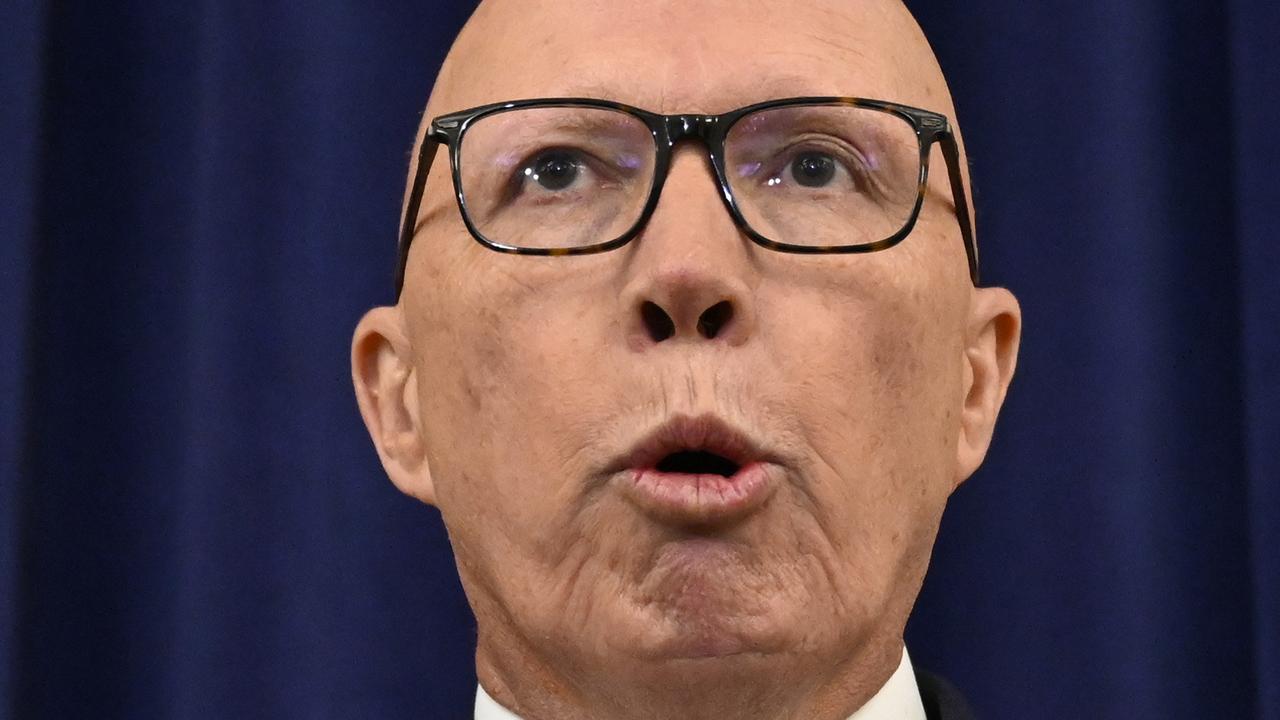Coronavirus: Australia at risk of losing its AAA credit rating after massive stimulus spend
The local economy has been dealt yet another bad “omen” as the government scrambles to keep ahead of the coronavirus crisis.

Major ratings agency S&P Global has revised its forecast for Australia’s ability to repay debt after the government was forced to spend hundreds of billions of dollars to keep the economy ticking over during the coronavirus pandemic.
The country is now at risk of losing its coveted AAA credit rating after today being assessed as negative, a shift lower from its stable position as the economy faces “substantial deterioration” and a deep recession.
The Australian dollar weakened as a result of the announcement due to the higher cost debt will likely be in the future, while Australian shares plunged more than 2 per cent at the open — though it has recovered through the day’s trading.
The massive debt being accrued during the pandemic will now likely inflict higher interest on repayments.
RELATED: Australians could be locked in isolation for months
RELATED: Follow the latest coronavirus updates
RELATED: How ‘flattening the curve’ saves lives
“The COVID-19 outbreak has dealt Australia a severe economic and fiscal shock,” S&P said in its note.
“We expect the Australian economy to plunge into recession for the first time in almost 30 years, causing a substantial deterioration of the government's fiscal headroom at the 'AAA' rating level.”
The ratings agency said the enlarged budget deficit is expected to remain for the next two years and then ease due to the general strength of Australia’s financial structure.
“Net government debt and relative interest cost nevertheless are likely to remain at elevated levels for a number of years,” S&P Global said.
Australia was one of the few countries to maintain its AAA credit rating through the Global Financial Crisis because it avoided taking on huge sovereign debt.
IG markets analyst Kyle Rodda said the revision from the agency is significant because it reflects a major shift in Australia’s economic management as it spends big to keep industries and businesses ticking over through the virus-induced national shutdown.
The $130 billion JobKeeper package to subsidise wages is a notable example of the massive amounts of money needed to support the economy.
“We will come out of this crisis highly indebted and less credit worthy as a country as we were before,” the analyst told news.com.au.
“Our government was considered one of if not the most reliable payers of debt but that all changes now.
“And once these things happen, it takes a long time to achieve that status again.
“It's a bit more of an omen of the fact we’re entering into a new reality for the Australian economy.”
EXTENDED LOCKDOWN WILL COST $500 BILLION
The initial expectation was the coronavirus would stall trading for a short period, resulting in a major hit to Australia’s gross domestic product in the second quarter, and then bounce back in the three months after.
But the extended closing of society now being proposed by medical experts will likely impact the nation's economy for two quarters.
Leading independent economist Saul Eslake told news.com.au this would lead to the already eye-watering cost of the pandemic blowing out exponentially.
He said the federal government had so far committed more than $200 billion in stimulus packages, the state governments have coughed up close to $50 billion, and all have missed out on at least $100 billion in taxes because of the crippling disruption to business and trade.
Given almost all of the relief measures have a shelf life of six months, extending the support beyond two quarters would cost federal and state governments at least $500 billion, Mr Eslake said.
“There could be pent-up demand (for some industries)," he said.
“But the holidays that aren't taken, the meals that aren't eaten, the visits to the cinema or the theatre that aren't done can't be replaced.
“So there are permanent losses.”
AMP Capital chief economist Shane Oliver said he expected the government to relax its shutdown in the coming months.
Such an elongation in the shutdown in society, he said, would result in “real damage” to the broader economy.
“The bottom line will feed into construction and manufacturing, whereas at the moment it’s mainly service industries that are being heavily affected,” he told news.com.au.
Dr Oliver said a longer period for industries being crippled by the virus could lead to a loss to GDP of 20-25 per cent, which would be greater than the loss inflicted during the Great Depression.
“As you get further and further out, all the contractions that will occur will just start flatlining,” Dr Oliver said.




